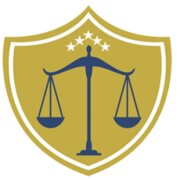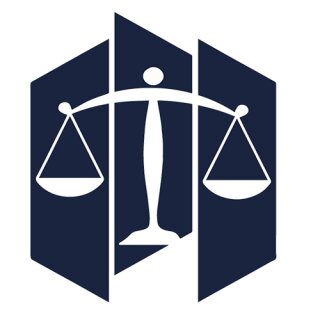Best Constitutional Law Lawyers in Canada
Share your needs with us, get contacted by law firms.
Free. Takes 2 min.
Or refine your search by selecting a city:
List of the best lawyers in Canada
About Constitutional Law in Canada
Constitutional Law in Canada is a critical aspect of the legal system that deals with the interpretation and application of the Constitution. This body of law outlines the structure of the federal government, the division of powers between the federal and provincial governments, and the rights and freedoms of individuals. The Constitution Act, 1867, and the Constitution Act, 1982, along with the Canadian Charter of Rights and Freedoms, are fundamental components of Constitutional Law in Canada. These documents collectively establish the rules and principles governing the country and ensure that the government operates within its defined limits.
Why You May Need a Lawyer
There are several situations where you may need legal assistance in Constitutional Law. These can include cases involving the protection of your fundamental rights and freedoms as outlined in the Charter, such as freedom of expression, religion, or the right to a fair trial. You might also require legal help if there is a dispute over the jurisdictional powers between federal and provincial governments. Additionally, if you are challenging the validity of a law or a government action that you believe violates the Constitution, it is crucial to seek skilled legal advice in Constitutional Law.
Local Laws Overview
Understanding local laws that intersect with Constitutional Law is crucial in Canada. The Constitution is the supreme law of the land, and all other laws must align with it. Key aspects include the division of powers, which allows federal and provincial governments to legislate in specific areas. The Charter of Rights and Freedoms protects individual rights, including equality rights, mobility rights, and legal rights. Any legislation or government action that infringes upon these constitutional provisions may be subject to legal challenges, necessitating judicial interpretations by the courts.
Frequently Asked Questions
What is the Canadian Charter of Rights and Freedoms?
The Charter is a bill of rights entrenched in the Constitution Act, 1982, that protects fundamental freedoms, democratic rights, mobility rights, legal rights, equality rights, and language rights of individuals in Canada.
Can the government limit my rights under the Charter?
Yes, but any limitation must be justifiable in a free and democratic society, as outlined by section 1 of the Charter. Legislation must meet the proportionality test set by the courts.
What is judicial review in the context of Constitutional Law?
Judicial review is the process by which courts examine the constitutionality of legislative and executive actions to ensure they comply with the Constitution.
What is the division of powers in Canada?
The division of powers refers to the distinct areas of legislative authority allocated to the federal and provincial governments under the Constitution Act, 1867.
What role do the courts play in Constitutional Law?
Courts interpret and apply the Constitution to resolve disputes. They have the power to declare laws invalid if they are found to be unconstitutional.
Can provinces have their own charter of rights?
No, the Charter of Rights and Freedoms is applicable throughout all provinces and territories in Canada.
How can I challenge a law that I believe is unconstitutional?
Challenging a law can be a complex process that typically involves filing a lawsuit. It's advisable to consult with a lawyer specializing in Constitutional Law to assess your case.
What are fundamental freedoms under the Charter?
Fundamental freedoms include freedom of conscience and religion, freedom of thought, belief, opinion, expression, freedom of peaceful assembly, and freedom of association.
Is there a limitation period for constitutional challenges?
While there isn't a specific limitation period for raising constitutional questions, timing is crucial for challenging governmental actions, especially those affecting individual rights.
Are Indigenous rights covered by the Constitution?
Yes, section 35 of the Constitution Act, 1982, recognizes and affirms existing Aboriginal and treaty rights of Indigenous peoples in Canada.
Additional Resources
Several resources can provide valuable insights into Constitutional Law in Canada. These include the Department of Justice Canada, which offers publications and tools related to constitutional matters. The Supreme Court of Canada is another crucial resource, as its decisions set precedents in Constitutional Law. Organizations such as the Canadian Civil Liberties Association and the Canadian Bar Association provide information and support for people dealing with constitutional issues.
Next Steps
If you believe you need legal assistance in Constitutional Law, the first step is to consult with a lawyer who specializes in this area. Seek recommendations from trusted sources, or contact your local bar association for referrals. Prepare all relevant documents and information pertaining to your case and be ready to discuss your concerns and objectives with the lawyer. Exploring legal aid options might also be beneficial if you face financial constraints. Engaging a knowledgeable lawyer will ensure you receive appropriate guidance and representation in your constitutional law matters.
Lawzana helps you find the best lawyers and law firms in Canada through a curated and pre-screened list of qualified legal professionals. Our platform offers rankings and detailed profiles of attorneys and law firms, allowing you to compare based on practice areas, including Constitutional Law, experience, and client feedback.
Each profile includes a description of the firm's areas of practice, client reviews, team members and partners, year of establishment, spoken languages, office locations, contact information, social media presence, and any published articles or resources. Most firms on our platform speak English and are experienced in both local and international legal matters.
Get a quote from top-rated law firms in Canada — quickly, securely, and without unnecessary hassle.
Disclaimer:
The information provided on this page is for general informational purposes only and does not constitute legal advice. While we strive to ensure the accuracy and relevance of the content, legal information may change over time, and interpretations of the law can vary. You should always consult with a qualified legal professional for advice specific to your situation.
We disclaim all liability for actions taken or not taken based on the content of this page. If you believe any information is incorrect or outdated, please contact us, and we will review and update it where appropriate.
Browse constitutional law law firms by city in Canada
Refine your search by selecting a city.
















